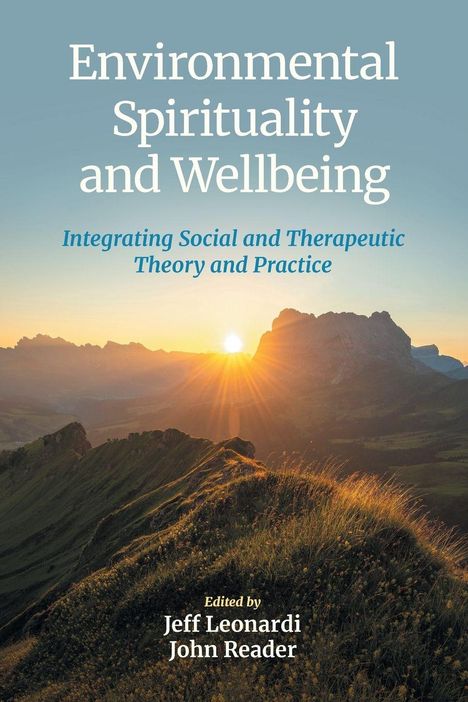Environmental Spirituality and Wellbeing, Kartoniert / Broschiert
Environmental Spirituality and Wellbeing
- Integrating Social and Therapeutic Theory and Practice
(soweit verfügbar beim Lieferanten)
- Herausgeber:
- Jeff Leonardi, John Reader
- Verlag:
- Equinox Publishing Ltd, 10/2025
- Einband:
- Kartoniert / Broschiert
- Sprache:
- Englisch
- ISBN-13:
- 9781800505841
- Artikelnummer:
- 12183470
- Umfang:
- 226 Seiten
- Gewicht:
- 2295 g
- Maße:
- 234 x 156 mm
- Stärke:
- 12 mm
- Erscheinungstermin:
- 1.10.2025
- Hinweis
-
Achtung: Artikel ist nicht in deutscher Sprache!
Weitere Ausgaben von Environmental Spirituality and Wellbeing |
Preis |
|---|---|
| Buch, Gebunden, Englisch | EUR 138,68* |
Klappentext
Environmental Spirituality and Wellbeing argues for a recognition that human beings have lost something precious that needs to be restored: our intrinsic co-relationship with the natural world at every level, physical, spiritual and psychological.
Wellbeing can be described in purely secular terms, but a spiritual perspective adds considerable depth and scope, distinguishing it from superficial or momentary happiness. Wellbeing in spiritual terms reaches out beyond the individual towards relationship which can embrace both interpersonal relationships and relationship with the natural world. To accommodate the spiritual dimension in this book we offer the term 'Well-becoming', with a focus on the past and the present as they develop into the future, and thus generate an evolutionary perspective. We suggest that in our times the scientific paradigm itself needs to expand and evolve to embrace the subjective / emotional and intuitive / spiritual modes of awareness. Otherwise human beings are left isolated, with all that matters most, humanly, on one side, and the scientific / technological perspective divorced from humane values on the other, and threatening to dominate. Nowhere is this more evident than in the environmental crisis where human beings enact upon the planet and ourselves the adverse results of a progressive alienation from our physical and spiritual natures, and thereby from our relationship with the natural world. We look to psychotherapeutic understandings and eco-social interventions into wellbeing and well-becoming to lead us forward from this tragic predicament. The book benefits greatly by including rich cross-cultural comparisons from a Brazilian context.
This book speaks to a wide readership, including counsellors and psychotherapists, theologians and ministers, environmentalists, those who are 'spiritual but not religious' and all who are concerned about our relationship with our planet.

